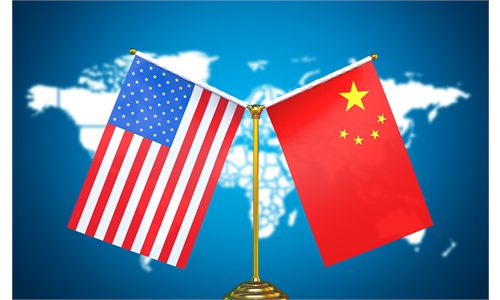While this syndrome can affect many parts of the body, men should watch out for its effects on their urinary system in particular.
https://www.facebook.com/share/v/PBZkgeUGMFbs95ZK/
MEN’S health issues often come to the forefront during this time of the year, spotlighting concerns like prostate cancer and mental health.
But there’s a year-round need to address conditions like metabolic syndrome, which can greatly influence men’s quality of life and vitality.
By 2040, Malaysia’s demographic will include an almost equal share of young (18.6%) and older populations (14.5%), with the elderly population surpassing six million – a key milestone in the country’s transition to an ageing nation.
As this demographic shift unfolds, managing metabolic syndrome in men will be crucial to promoting healthy ageing and supporting men’s resilience throughout life’s stages.
What is this syndrome?
As shared by consultant nephrologist and internal medicine physician Dr Radzi Rodzlan, metabolic syndrome is characterised by at least three of the following five risk factors:
> Central obesity
> High serum triglycerides (having too much fats in your blood)
> Low high-density lipoprotein cholesterol (HDL-C, or when a person does not have enough “good” cholesterol in their blood)
> Raised blood pressure, and > Raised fasting blood sugar levels.
“Metabolic syndrome affects both men and women,” he says.
“Studies showed that the overall prevalence of metabolic syndrome among adults in Malaysia lies between 25% to 40%.
“Risk factors most closely tied to metabolic syndrome include age – you are more likely to have it the older you are.
“Personal or family history of diabetes where women who have had diabetes during pregnancy (gestational diabetes) or people who have a family member with type 2 diabetes are at greater risk for metabolic syndrome.
“Other risk factors include unhealthy eating habits, smoking, history of heavy drinking, stress, being past menopause, high-fat diet and sedentary lifestyle.”
He adds that having metabolic syndrome can increase one’s risk of developing type 2 diabetes, and can cause heart and blood vessel disease, eventually leading to heart attack or stroke.
Affecting the urinary system
Metabolic syndrome is also linked to several conditions involving the male urinary system, including kidney stones, benign prostatic hyperplasia (BPH) or enlarged prostate, lower urinary tract symptoms, erectile dysfunction, male infertility and prostate cancer.
“There has been increasing evidence that men with metabolic syndrome are at an increased risk of experiencing moderate to severe urinary symptoms as they age,” explains consultant urologist and robotic surgeon Datuk
Dr Selvalingam Sothilingam.
“Lower urinary tract symptoms, or collectively referred to as LUTS, are frequently caused by BPH.
“The symptoms include delay in initiating voiding (hesitancy), poor urinary flow, incomplete bladder emptying, urinary urgency or frequent urination, and disturbed sleep due to voiding (nocturia),” he explains.
Patients with these symptoms are urged to seek medical attention as soon as possible, especially those with an elevated prostate specific antigen (PSA) level.
If left untreated, BPH can lead to complications such as urinary tract infection, blood in the urine, acute urinary obstruction, urinary incontinence, renal impairment and bed-wetting.
BPH may also cause obstruction to the kidney, leading to kidney swelling (hydronephrosis), and in severe cases, kidney failure.
This condition is often referred to as chronic obstruction and men will typically experience hypertension (high blood pressure), bilateral leg swelling and often complain of bedwetting (nocturnal enuresis), he adds.
Dr Selvalingam stresses the importance of going for health screenings, as early detection is key in preventing further complications.
“Eighty percent of men with BPH can be successfully treated with medication.
“However, these medications need to be taken long term.
“Men with complications from BPH may require surgery such as TURP (transurethral resection of prostate), or minimally-invasive treatments such as Rezum (water vapour therapy for the prostate),” he says.
Taking care of the kidneys
Metabolic syndrome can result in significant changes to kidney structure and function.
Dr Radzi says: “These changes include decreased glomerular filtration rate (GFR), which is a calculation to measure how well a person’s kidneys are working in filtering out waste and extra fluid from their blood, and increased urinary microalbumin, which indicates protein leakage from the kidneys.”
Such alterations in kidney function can lead to chronic kidney disease (CKD), which may progress to severe health issues, including end-stage kidney disease that requires dialysis or kidney transplantation.
He adds that early symptoms and signs of kidney problems associated with metabolic syndrome can include leg swelling, frothy urine and abnormal results in blood and urine tests.
To prevent the progression of CKD, he notes the importance of regular health screenings, as early detection is vital for avoiding further complications related
to metabolic syndrome.
In additional, both doctors encourage lifestyle changes such as regular exercise to combat insulin resistance and adopting a heart-healthy diet by avoiding excessive amounts of carbohydrates that stimulate excess insulin production.
These proactive measures can significantly improve overall health and reduce the risk of developing kidney-related issues.
Take charge of your health
As Malaysia transitions into an ageing nation, understanding and addressing men’s health, particularly in the context of metabolic syndrome, becomes increasingly important.
With a significant portion of the population facing the challenges associated with metabolic syndrome, including the risk of urinary and chronic kidney problems, proactive health management is crucial to adopt now.
By fostering awareness and encouraging health screenings, as advocated by both Drs Selvalingam and Radzi, men can take charge of their health, facilitating early detection and intervention that can greatly improve health outcomes.
This will not only enhance the quality of life for individuals, but will also contribute to the overall well-being of Malaysia’s ageing population.
Critical to improve health literacy
Not the best for weight
Although BMI is widely used as a measure of weight, it is not very accurate and can lead to the mistreatment of obesity and eating disorders.







